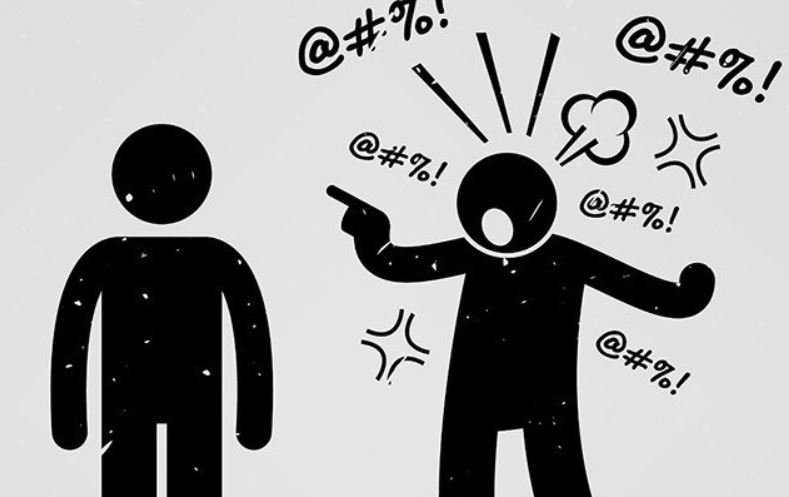

Cursing, swearing, and foul language is a universal phenomenon that has existed from the beginning of time and one that will continue to exist for a long time to come. Parents dread the time when their children will casually drop the F bomb in public, embarrassing them.
Yet the percentage of people who don’t swear at all is nothing compared to the majority. Research by the association of psychological sciences shows that people “swear on average from 0.3% to 0.7% of the time.” This may seem like a small percentage, but it still takes up a “significant percentage of our overall speech.”

How to stop swearing and cursing so much
So, if most of us swear, and we all do it often, what’s the problem?
First, let’s understand why we spew curses, to begin with, and why it may be necessary to stop.
There are both negative and positive connotations to swearing but it is used to either express and emotion or to attain a reaction from others.
It is because of this negative association that swearing is still taboo despite its constructive use. Consider as well that originally swearing was meant to be derogatory, and although that has evolved over time, the fact that it is can be meant in different ways lends it an ambiguity that leaves it open to individual interpretation. Which means that “hey b****!” isn’t always met with a smile and a hug. Say the wrong thing to the wrong person and find yourself in hot water.
Apart from the fact that it’s not socially acceptable to go around uttering profanities, it is also unlikely to land you a job, or even respect for your intelligence. It is generally assumed that good, expressive English is a far better marker for that.
So, now we understand why swearing will get us more trouble than its worth, how do we stop?
How? I don’t know, only you do. Think of what will push you to actually make the change. The fact that you are looking is a sign that you want to stop, but you need to figure out a strong enough ‘why’ to actually do it.
Changing a habit that is so ingrained is near impossible without a good enough reason. Your reason can be anything, from wanting to improve your language to not wanting to lose your job. Whether big or small, make sure whatever your ‘why’ is, works.
Since profanity is simply a way to express oneself, all you need to do is find another. Some people opt to make up new words that are fun and funny at the same time.
Snickerdoodle, fiddlesticks, banana shenanigans are all examples of made up words that are used as cuss replacements. Made up words have the same effect as actual curse words, with none of the offensiveness.
If you are not the ‘making-up-words-type-of-person’ then worry not, languages have your back. Consider English alone- a universal, colourful language that is full of descriptive words that express virtually every emotion.
“That is absolute drivel” is far better than, “f****ng S**t!”
Speaking a proper language has the added advantage of making you sound far more intelligent and you will derive immense satisfaction when your opponent can only come up with unimaginative swear words to your full-on thesaurus of them.
All it takes? A little bit of practice.
There are many ways you can employ to help yourself remember that you gave up swearing. You can either do this through punishment or positive reinforcement.
This is exactly what it sounds like, buy an elastic band and wear it on your wrist at all times. Whenever you catch yourself spewing profanities, snap it back and feel the pain as it stings your arm. This is an enforcement method.
The Idea is to use pain association to steer your unconscious away from swearing as a response to external stimuli.
An age-old method to stop swearing, put a certain amount of money in a repository (it doesn’t have to be a jar) every time you catch yourself swearing.
While this is an enforcement because it is taking away something as a result of a certain behavior, one can easily turn it into a reinforcement. Motivate yourself by setting goals for how much can be in the jar.
For example, if you have less than $10 a day, then you can use that to buy something nice. However, if you have more, you have to give it to charity. This way, you are not encouraged to swear more because you want to buy a new pair of shoes, and if you do swear a lot, at least someone or something can benefit from it.
Doing something with a friend is always more fun than doing it alone. It also keeps you honest and helps you actually achieve your goals.
Find a friend who also wants to stop swearing and work together. It doesn’t mean you have to see each other all the time, but when you do, you’ll be sure to keep each other going.
Do not worry if no one wants to join you in your journey towards a cleaner mouth, simply let your family and friends know what you are trying to do. They will absolutely enjoy reminding you when you slip, and that should keep you accountable.
So, you’ve decided to stop swearing, give yourself time to re-train your brain. Like every habit, it takes time, so work at it and keep aiming for the day you’ll stop.
That’s it, 5 simple steps to erase foul words from your vocabulary. Good luck and remember to have fun in your new project!
References